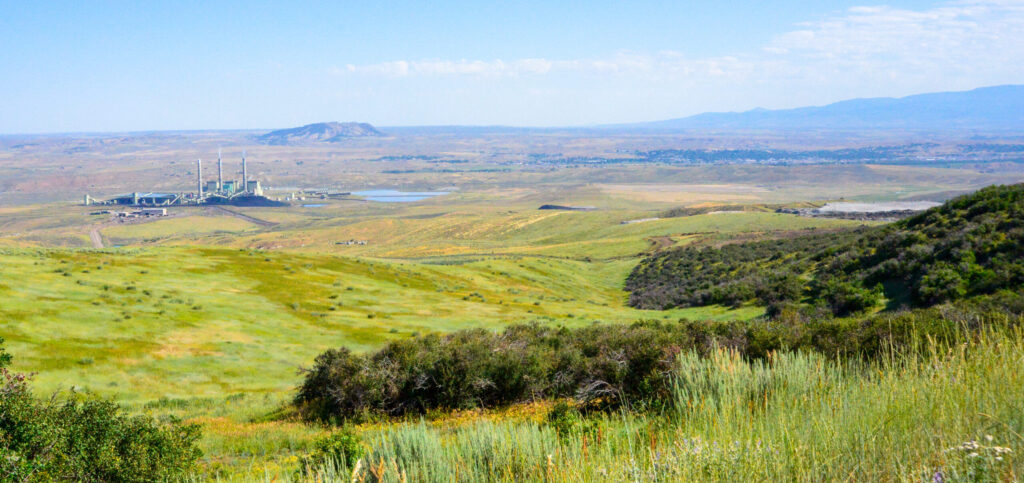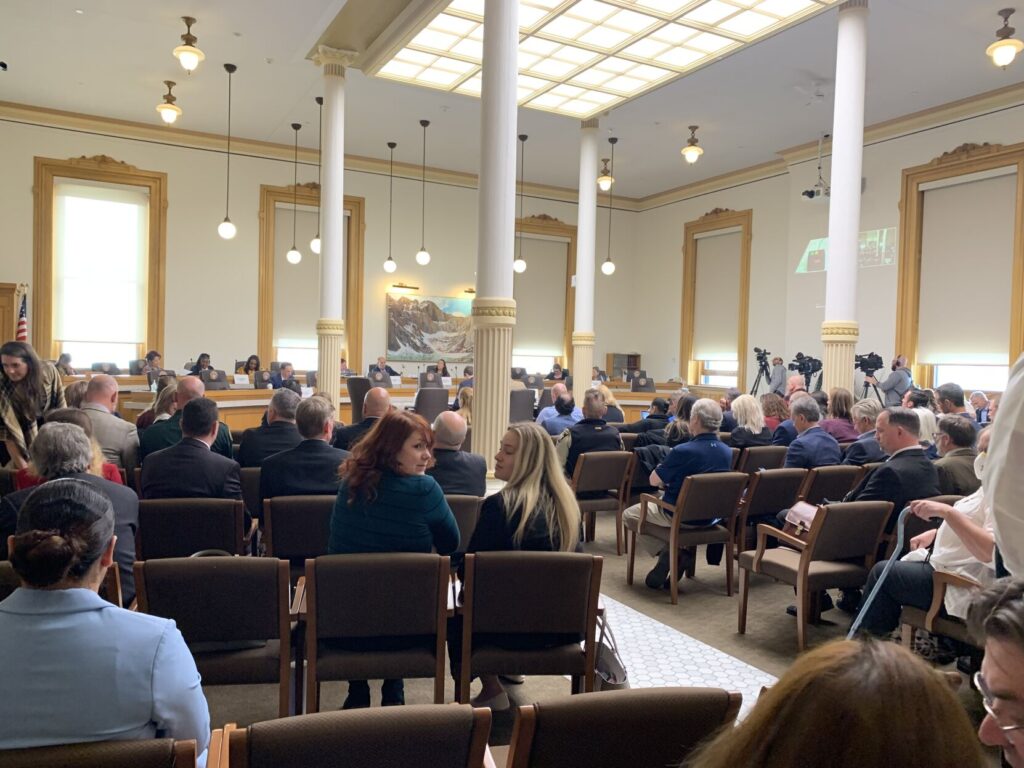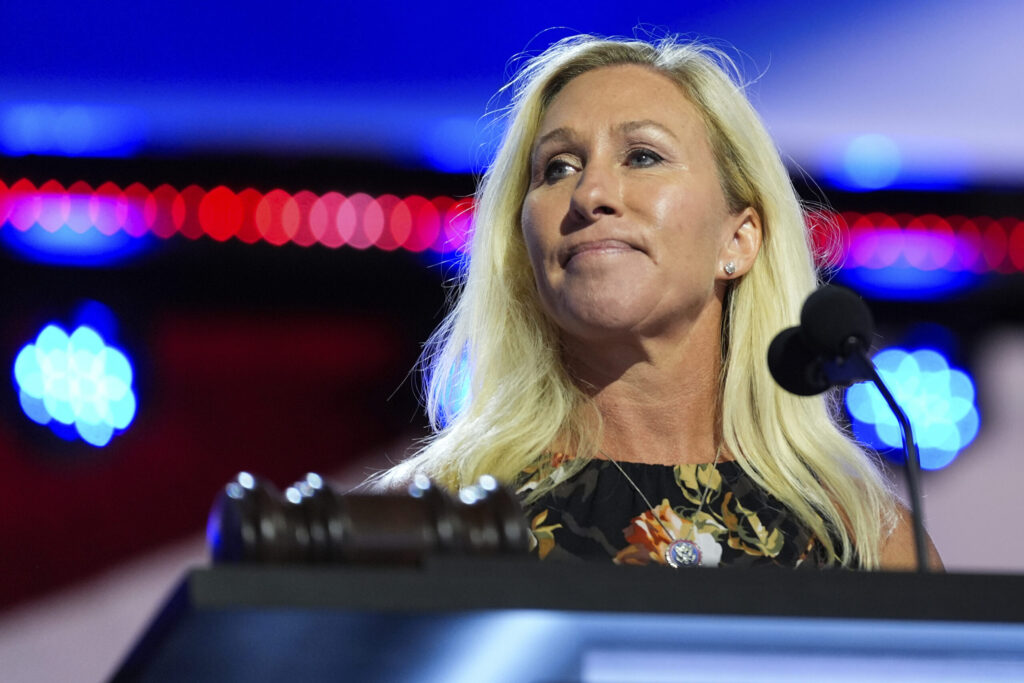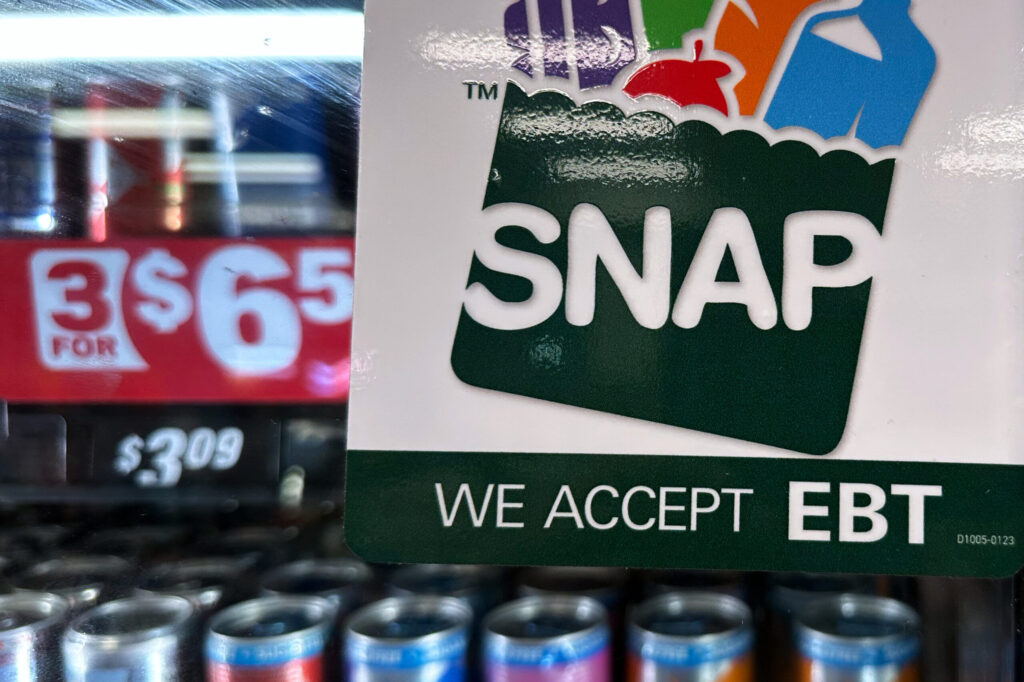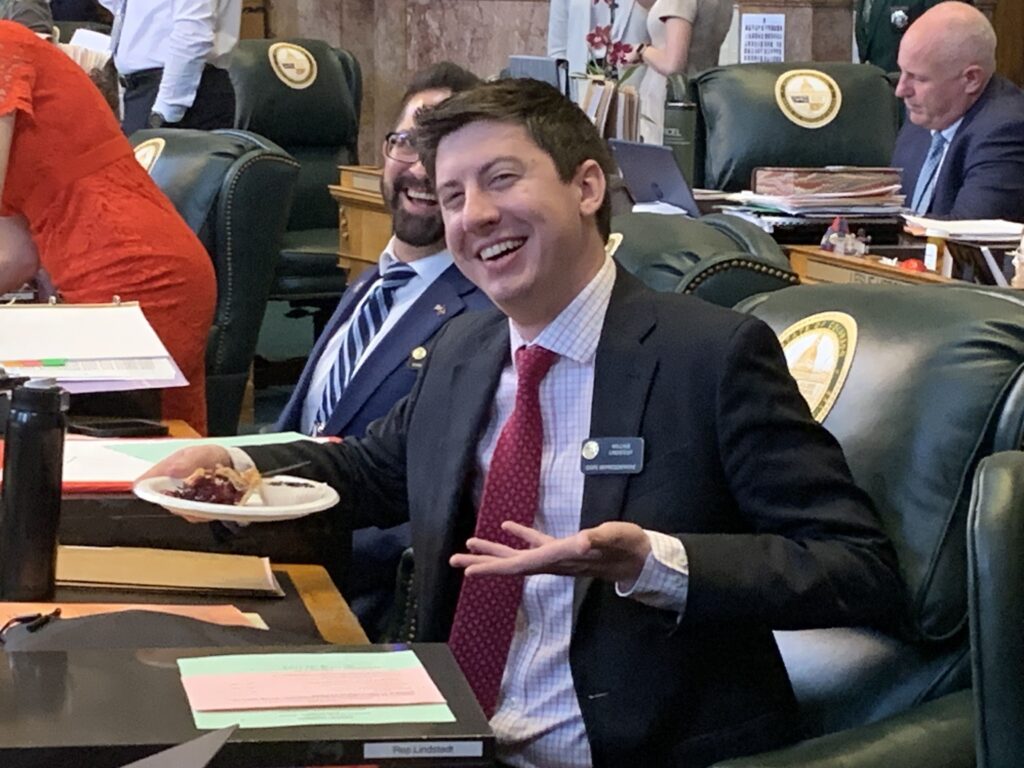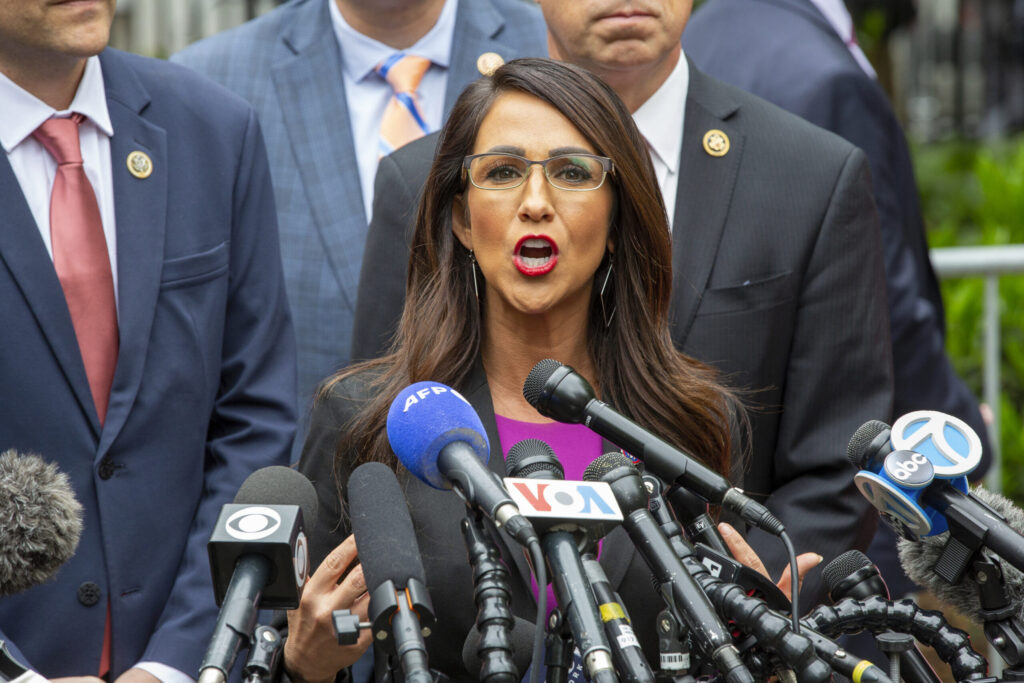Marijuana, oil & gas initiatives claims disputed
A proposed constitutional amendment to add stricter regulations to the sale of marijuana and related products in Colorado did not make the Nov. 8 general election ballot because the industry “bought off” companies that help gather petition signatures, backers of the failed measure claim. A marijuana industry official called the allegation untrue and backers “old school” in their total opposition to marijuana.
Meanwhile, two oil and natural gas-related measures fell short of the required number of signatures when the energy industry resorted to what backers called harassment of those gathering signatures to place the measures on the ballot and “cheap funhouse mirror” stunts. An energy industry spokeswoman said there is “nothing to these” allegations.
The claims came during petition signature gathering this year, based on a random review of seven proposed ballot questions and interviews by The Colorado Statesman. To place citizen initiatives on the ballot, proponents had to collect 98,492 signatures of registered state voters by Aug. 8.
According to a July 8 Colorado Springs Gazette story, supporters of Initiative 139 felt they “simply couldn’t go toe-to-toe with the marijuana moguls who committed tens of millions to defeat our common-sense controls on the sale of recreational marijuana,” Ali Pruitt, an initiative supporter, was quoted in a statement. “The marijuana industry built a wall of money between us and the November ballot that we simply couldn’t break through.”
Along with a potency limit of 16 percent THC, the amendment would have required marijuana be sold in child-resistant packaging, edible marijuana products sold as individually packaged, single-serve products, and warnings placed on packages that included potency and health risks.
Jo McGuire, a consultant to the group behind Initiative 139, Healthy Colorado Coalition, told the Statesman they had to fight a legal challenge to the state’s single-subject rule, which was upheld by the Colorado Supreme Court. Then, when the group started to seek a firm to help them get signatures, none could be found.
“We finally talked to one out-of-state firm that is licensed in Colorado and they told us they had signed a no-compete agreement that prevented them from working with us,” McGuire said.
McGuire added the group then heard from two or three other firms that had also signed no-compete agreements for “$3,000 to $5,000.” The Gazette, in an accompanying July 8 editorial, quoted attorney and former Colorado House Speaker Frank McNulty, who said the money involved was between $75,000 to $200,000, according to information he received from an anti-139 consultant.
“By then, we were looking at having about four weeks to get it done and there just wasn’t time,” McGuire added.
Tyler Henson, president of the Colorado Cannabis Chamber of Commerce, said if initiative backers have proof of the no-compete agreement claim, “I would love to see it, because it’s not true.”
“I think they really realized that Colorado residents support the marijuana industry, so they were going to lose,” Henson added. “And no one would give them money except the people in their own little circle. They’re old school people who only want to take away a perfectly legitimate business based on their own beliefs.”
It wasn’t a lack of funds that caused the Healthy Colorado Coalition to end their efforts, McGuire said, it was a lack of petition companies willing to sign on.
“We had the financial commitments, if not the money in hand, that would have been more than enough,” McGuire stated.
According to Colorado Secretary of State campaign finance records, Healthy Colorado Coalition raised $3,258.30 from June 23 through July 27, the only filing statement the committee was required to submit before being designated a “terminated” committee on Aug. 1.
In contrast, the Colorado Health Research Council, an opposing committee, reported raising $197,332.69 in its Sept. 6 report, from contributions received between July 28 and Aug. 31.
The experience was disappointing for McGuire and other supporters of Initiative 139. But it also served as a motivator, she added.
“If the marijuana industry will do something like this, we will do all we can to counter that,” McGuire said. “What happened may not be necessarily illegal, but I think our policy makers should at least look at this and ask why are no-compete agreements even allowed?”
Oil and gas efforts thwarted by industry?
Backers of two oil and gas amendments, 75 and 78, failed to submit enough valid signatures to earn a place on this year’s ballot, according to the secretary of state. Supporters have until Sept. 28 to file a legal challenge to the ruling in Denver District Court.
Amendment 75 would have given local governments the authority to regulate oil and gas development within their borders, while Amendment 78 would have required all new oil and gas development facilities to be at least 2,500 feet from an occupied structure.
One group that gathered signatures for both amendments, Yes for Health and Safety, issued a news release in late July that claimed at least 10 incidents in several Colorado cities where local volunteers and paid circulators collecting signatures “reported being followed, yelled at, and physically threatened by unidentified people repeating oil and gas industry talking points.”
“In one case, an aggressive man lectured people who had already signed a petition, forcing them to cross their names out,” the release read. “In another, canvassers were followed, yelled at, and threatened throughout the day by a man in a vehicle. There have been social media threats of violence, demeaning language used in public places, and, in one case, an 84-year old canvasser was followed, repeatedly called ‘crazy,’ and physically taunted while trying to walk away. Such acts of intimidation represent a violation of Coloradans’ civil and constitutional rights.”
Another group that gathered signatures for the two amendments, Food & Water Watch, posted a blog entry on Aug. 23, entitled “5 Ways the Fracking Industry Tried to Sabotage Our Historic Efforts in Colorado.”
Included was a claim that industry groups and supporters “showed up at festivals and fairs, trying to appear fun and lighthearted, and paid for booths where they handed out magnifying glasses and set up funhouse mirrors. Their deceptive message? Petitions and petition gatherers can distort the truth. But we see another message in this cheap funhouse mirror stunt: the fracking industry is frightened by people learning the clear truth.”
Karen Crummy, communications director for Protect Colorado, an industry-led group that opposed the two measures, said there is nothing to the allegations.
“We would never instruct anyone to harass anyone,” she said. “There’s nothing to say because there’s nothing to this.”
Crummy added she was not aware of a possible “wildcat” operation or group with members who worked for or were associated with the industry that might have been involved.
Other issues include lack of money, perceptions
Initiative 12, the Colorado Concealed Handgun Permits Initiative, would have prohibited law enforcement officials from citing someone’s lawful use of marijuana as a reason to deny a permit to carry a concealed weapon.
One of the measure’s sponsors, Edgar Antillon, said the issue he and other supporters ran into was that “people who own guns or have concealed carry permits did not want to be associated with marijuana.”
“Our big uphill battle was that fear,” he added, which was at the heart of what the initiative was to address.
Antillon said backers gathered around 45,000 signatures, and did not encounter any resistance or other issues.
Initiative 87, the Fiscal Impact Statements for Initiated Measures Amendment, would have required fiscal impact statements for statewide initiated ballot measures. Supporters withdrew the petition before signatures were gathered due to the high cost of circulating petitions and promoting the measure, if it made the ballot, said attorney Peter Moore of Denver.
“And we felt there were other proposals, like the Raise the Bar initiative, that stood a better chance of passing,” Moore said, referring to Amendment 71. That measure would require proponents of a constitutional amendment to collect signatures from 2 percent of registered voters in each of the state’s 35 senate districts. And it would require 55 percent of state voters to approve an amendment instead of a simple majority.
Initiative 40, the Right to Local Self-Government Amendment, would have said that people have a right to local self-government in counties and municipalities.
Merrily Mazza, president of the Colorado Community Rights Network, said the group could have gathered enough signatures, if more time was allowed.
“Right now, the system requires you to spend a boatload of money or have a huge group of volunteers,” she said. “It’s really set up to make money for the petition companies and to squelch the grassroots groups.”
Another issue backers ran into, Mazza said, was heavy spending against the measure by the energy industry.
“I think their actions will soon push things to a tipping point where people rise up when they can’t control what happens in their own back yard,” she added. “And I’m talking about civil disobedience.”
Initiative 117, the Retention of Excess State Revenue Initiative, would have allowed the state to spend revenues that go beyond the constitutional limitation on fiscal year spending. Supporters suspended the campaign on July 19.
Lisa Weil, executive director of campaign supporter Great Education Colorado, said the campaign had started to gather signatures in some 70 communities, but realized it would be very expensive to proceed to the ballot.
“Our polling showed people were very receptive to seeing the state invest its funds in things like education,” Weil stated. “But it just became cost prohibitive. I really think that if we had got it through to the ballot, and had the money to adequately promote it, we would have won.”
Two other measures, Initiatives 132 and 133, would have addressed how Colorado’s political boundaries are set every 10 years, based on U.S. Census data. The Colorado Supreme Court rejected both initiatives because they did not meet the single-subject rule.


